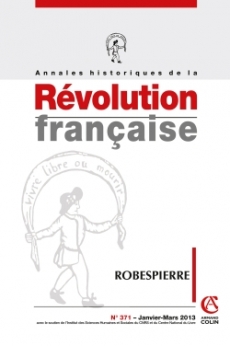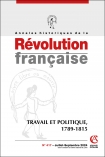
Annales historiques de la Révolution française n° 371 (1/2013)
Pour acheter ce numéro, contactez-nous
Recevez les numéros de l'année en cours et accédez à l'intégralité des articles en ligne.
Revolutionary leaders regularly claimed that they were motivated by virtue (dedication to the public good, rather than to self-interest and ambition). Yet there was a gap between this ideology and their actions which were – naturally - often self-interested. This presented an insoluble dilemma for Robespierre, as for all the revolutionaries: in order to have political credibility they needed to demonstrate that they were motivated by authentic virtue, yet inner motivation was not something that could be subject to conclusive proof. Robespierre’s political power owed much to his relative success in convincing his audience that his devotion to virtue was genuine; yet his claims were challenged by opponents who said his assumption of virtue was a mask to hide his ambition. The question of Robespierre’s authentic self became part of a battlefield over the legitimacy of the Revolution, and even the use of terror. The article explores this problem by focusing on specific instances when Robespierre’s authenticity was contested during his political career and continuing after his death.

